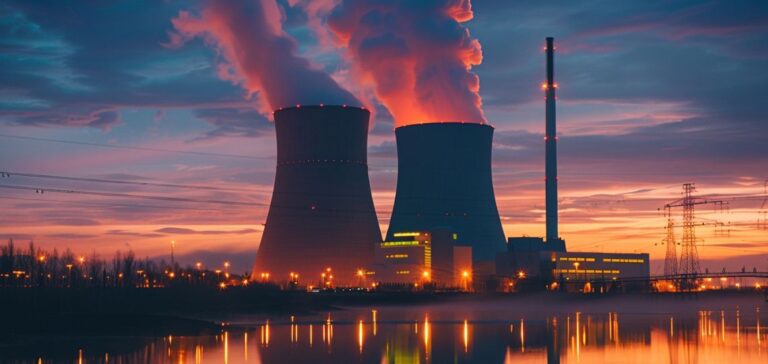Artificial intelligence is emerging as a key tool for optimizing complex processes in the nuclear sector. Everstar, a startup specializing in AI-powered compliance solutions, has closed a $4 million pre-seed funding round. Led by Third Prime VC, with support from Pelican Energy Partners, EXCEL Services, and other investors, this funding will help the company strengthen the development of Gordian, its platform designed to simplify regulatory procedures.
A strategic challenge for the nuclear sector
Nuclear operators and project developers must navigate strict regulations, often resulting in lengthy and costly processes. Gordian aims to address these challenges by automating and streamlining administrative procedures. This solution leverages artificial intelligence to interpret regulatory requirements, reduce processing times, and improve collaboration between industry players and regulatory authorities.
According to Everstar, AI-driven compliance management can save thousands of hours of work and millions of dollars while ensuring high safety standards. The goal is to facilitate the launch of new nuclear infrastructures amid growing electricity demand, particularly from data centers and semiconductor manufacturing industries.
A network of specialized partners
Everstar relies on a strategic partnership with EXCEL Services Corporation, a global leader in nuclear regulatory consulting. This collaboration integrates EXCEL’s vast network of regulatory specialists and data archives into Gordian, enhancing its ability to provide robust compliance solutions. The company also collaborates with the Nuclear Regulatory Commission, the Department of Energy, and the Department of Defense to ensure that its solution aligns with current regulatory requirements.
Kevin Kong, founder and CEO of Everstar, emphasizes that this funding represents more than just financial support; it is an opportunity to modernize a sector still constrained by cumbersome administrative processes. “We are facing an unprecedented surge in energy demand driven by AI and electrification. Yet, nuclear infrastructure deployment remains bottlenecked by outdated regulatory processes. With the backing of our investors, we aim to break through these barriers and accelerate access to reliable energy,” he stated.
Ambitious expansion plans
With this funding, Everstar plans to recruit new talent to strengthen its expertise in artificial intelligence and nuclear engineering. The company also intends to invest in enhancing its compliance AI engine and hardware integrations. In parallel, it aims to establish strategic alliances to modernize industry operations.
As electricity demand continues to rise and investments in energy infrastructure reach record levels, Everstar positions itself as a key player in optimizing regulatory processes. This initiative could play a crucial role in enabling industry stakeholders to deploy nuclear projects more rapidly while adhering to safety and compliance standards.






















